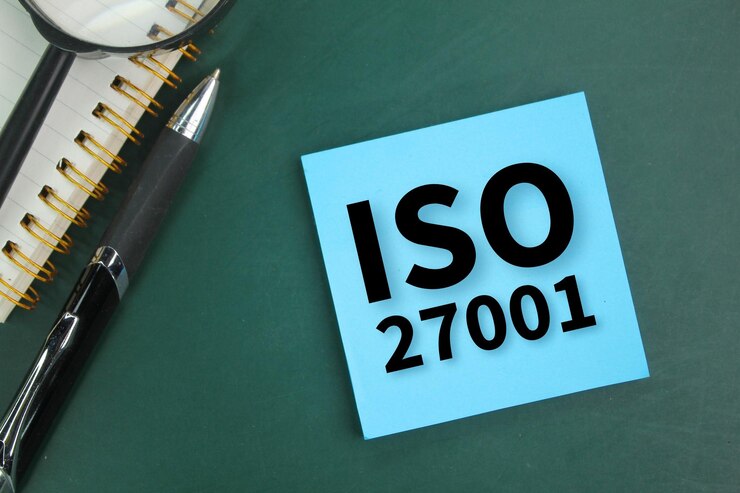
Introduction
In an age where data breaches and cyber threats are escalating, organizations must take a proactive stance on information security. ISO 27001, the international standard for information security management systems (ISMS), provides a robust framework to help organizations protect sensitive information. ISO 27001 training equips professionals with the essential skills and knowledge to implement effective security practices. This article examines the transformative impact of ISO 27001 training on organizational security, risk management, and overall operational efficiency.
Understanding ISO 27001
What is ISO 27001?
ISO 27001 is a globally recognized standard that specifies the requirements for establishing, implementing, maintaining, and continually improving an ISMS. It encompasses a holistic approach to managing sensitive information, addressing various aspects such as people, processes, and technology. By adopting ISO 27001, organizations can systematically protect their information assets, ensuring confidentiality, integrity, and availability.
Key Components of ISO 27001
ISO 27001 includes several key components that are critical for effective information security management:
- Risk Assessment and Management: Identifying and evaluating risks to information security and implementing appropriate controls to mitigate those risks.
- Security Controls: Establishing measures to protect information, including physical, technical, and administrative controls.
- Management Commitment: Ensuring leadership is actively involved in fostering a culture of security and allocating resources for the ISMS.
- Continuous Improvement: Promoting a cycle of assessment and enhancement to adapt to changing threats and vulnerabilities.
These components form the foundation of ISO 27001 and are crucial for organizations aiming to strengthen their security practices.
The Importance of ISO 27001 Training
Enhancing Knowledge and Skills
ISO 27001 training provides professionals with the knowledge and skills necessary to implement and manage an effective ISMS. Participants learn about risk assessment methodologies, security controls, compliance requirements, and best practices for information security management. This foundational knowledge empowers employees to make informed decisions regarding information security.
Fostering a Culture of Security
One of the most significant impacts of ISO 27001 training is the establishment of a strong security culture within the organization. When employees understand the importance of information security and their roles in protecting sensitive data, they are more likely to adhere to security policies and procedures. A culture of security reduces the likelihood of human errors that can lead to data breaches.
Supporting Compliance with Regulations
ISO 27001 training helps organizations navigate complex regulatory requirements related to data protection and privacy. By implementing an ISMS aligned with ISO 27001, organizations can demonstrate compliance with various legal frameworks, such as GDPR, HIPAA, and PCI DSS. This compliance not only mitigates legal risks but also enhances the organization’s reputation in the market.
Building Confidence Among Stakeholders
Organizations that prioritize ISO 27001 training can build trust and confidence among stakeholders, including customers, partners, and investors. Demonstrating a commitment to information security through certified training programs reassures stakeholders that their sensitive information is handled with care. This confidence can lead to increased customer loyalty and enhanced business opportunities.
Facilitating Effective Risk Management
A core aspect of ISO 27001 is risk management. Training equips professionals with the skills to identify potential risks, assess their impact, and implement appropriate mitigation strategies. By fostering a proactive approach to risk management, organizations can address vulnerabilities before they result in significant security incidents.
Key Competencies Developed Through ISO 27001 Training
Conducting Risk Assessments
ISO 27001 training emphasizes the importance of conducting thorough risk assessments as part of an effective ISMS. Participants learn how to identify risks to information security, evaluate their potential impact, and determine the likelihood of occurrence. This competency is essential for establishing a secure environment where risks are proactively managed.
Implementing Security Controls
Training covers the implementation of security controls based on ISO 27001 guidelines. Professionals gain insights into selecting and applying appropriate controls to protect sensitive information. Understanding how to implement these controls effectively is critical for ensuring that security measures are tailored to the organization’s specific needs.
Internal Auditing and Compliance
ISO 27001 training prepares individuals to conduct internal audits of the ISMS. Participants learn about auditing processes, compliance requirements, and best practices for assessing the effectiveness of security measures. This competency enables organizations to identify areas for improvement and ensure ongoing alignment with ISO 27001 standards.
Incident Response Planning
Effective incident response is vital for minimizing the impact of security breaches. ISO 27001 training equips professionals with the skills to develop and implement incident response plans. Understanding how to respond swiftly and effectively to security incidents is essential for maintaining organizational resilience.
Transformative Impact on Organizational Security
Strengthening Security Posture
Organizations that invest in ISO 27001 training experience a marked improvement in their overall security posture. By establishing a comprehensive ISMS, organizations can protect their information assets more effectively. This proactive approach reduces the risk of data breaches and enhances the organization’s ability to respond to emerging threats.
Enhancing Operational Efficiency
ISO 27001 training not only focuses on security but also emphasizes operational efficiency. By implementing standardized processes for information security management, organizations can streamline operations and reduce redundancies. This efficiency ultimately leads to cost savings and improved productivity.
Supporting Business Continuity
ISO 27001 training emphasizes the importance of business continuity planning. Participants learn how to develop strategies that ensure critical business functions can continue during and after a security incident. By integrating business continuity into the ISMS, organizations can minimize disruptions and maintain operational stability.
Improving Incident Response and Recovery
With a solid understanding of incident response procedures, trained professionals can lead organizations in managing security incidents effectively. This includes quick identification, containment, and remediation of incidents, which minimizes potential damage and accelerates recovery.
Challenges in Implementing ISO 27001 Practices
Resistance to Change
Implementing ISO 27001 practices may face resistance from employees who are accustomed to existing processes. To overcome this resistance, organizations must communicate the benefits of a structured approach to information security and provide ongoing support during the transition.
Keeping Up with Evolving Threats
The information security landscape is continuously changing, with new threats emerging regularly. Organizations must remain vigilant and update their ISMS accordingly. Ongoing ISO 27001 training ensures that professionals stay informed about the latest trends and best practices.
Resource Constraints
Some organizations may struggle with resource constraints that hinder the implementation of ISO 27001 practices. It is essential for management to allocate sufficient resources for training and implementation to ensure the effectiveness of the ISMS.
Conclusion
ISO 27001 training is a transformative investment for organizations seeking to strengthen their information security practices. By equipping professionals with the knowledge and skills necessary to implement an effective ISMS, organizations can better protect sensitive data, foster a culture of security, and demonstrate compliance with regulatory requirements.
The impact of ISO 27001 training extends beyond compliance; it enhances security posture, improves operational efficiency, and supports business continuity. As the threat landscape continues to evolve, investing in ISO 27001 training is not just a strategic decision but a necessary step toward safeguarding an organization’s future. By embracing the principles of ISO 27001, organizations empower their workforce to navigate the challenges of information security with confidence and competence, ultimately fostering a secure environment for all stakeholders.














